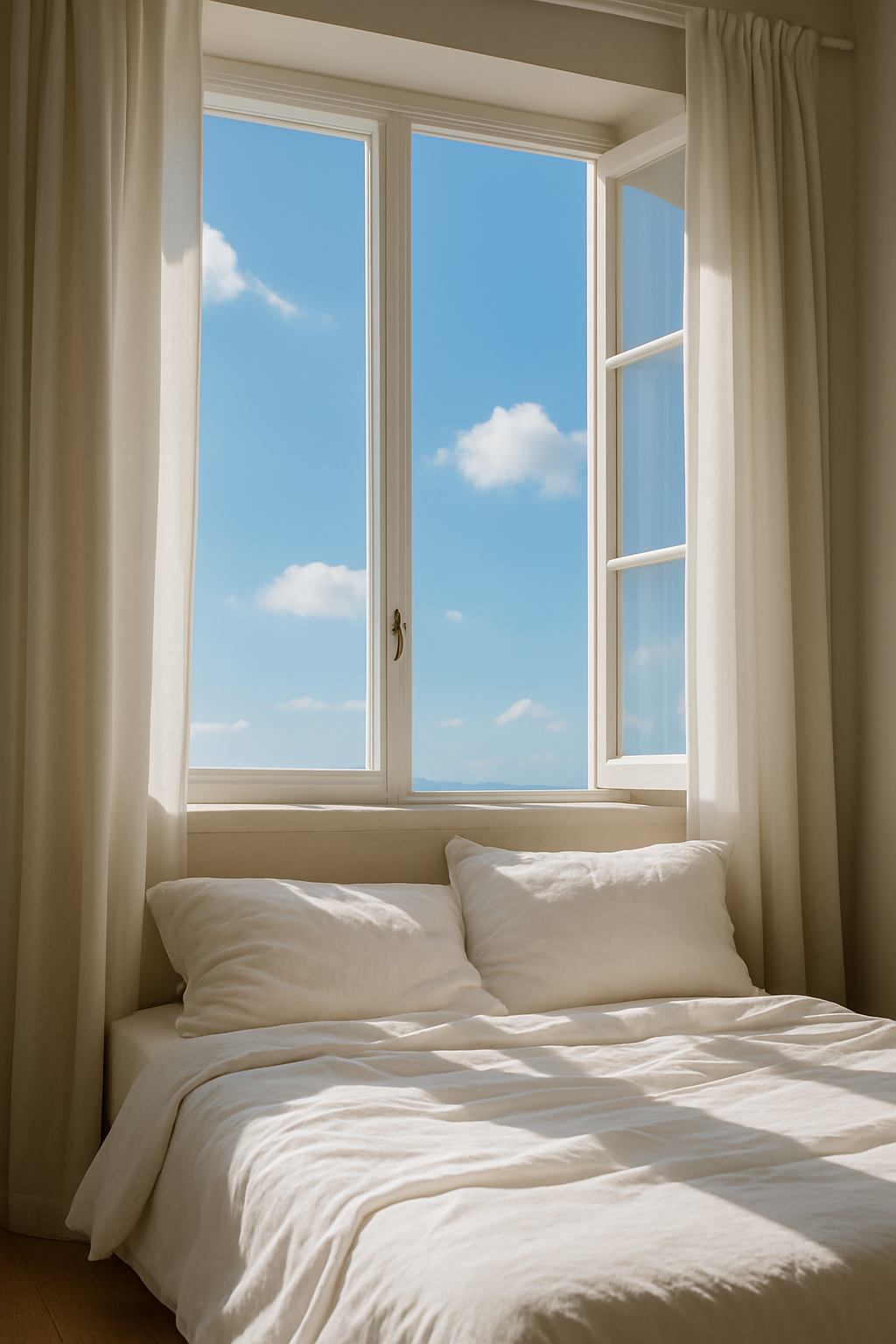
Happy Sleep, Happy Skin.
Clear, evidence-based skincare guidance for real life and real skin.
Understanding the Link Between Sleep and Skin Health
Sleep is essential for your skin’s renewal and repair. During deep sleep, your body produces growth hormones that help repair damaged cells, boost collagen production, and maintain your skin barrier.
A lack of quality sleep disrupts this process, leading to dullness, dryness, and premature ageing. It can also increase cortisol levels, which can trigger inflammation, breakouts, and impaired skin healing.
When you prioritise restful sleep, your skin may benefit from a natural glow, reduced puffiness, and better resilience to environmental stressors.
How This Can Present on the Skin
Signs of sleep deprivation on the skin include:
Dark circles or puffiness: Resulting from fluid retention or poor circulation.
Dull complexion: Due to reduced skin cell turnover.
Fine lines and wrinkles: A lack of sleep impairs collagen production.
Breakouts: High cortisol levels can increase oil production.
Weakened skin barrier: Making skin more prone to irritation and dryness.
Need a few practical tips?
You’ll find matching flashcards for this topic in the Happy Skin Collection — digital resources designed to support your skin one day at a time.
Browse them in the shop at Skin at Home™ on the main website.
Need Extra Support?
If you’re struggling with sleep, consider speaking to your GP or exploring resources from sleep specialists to improve your sleep routine.
Is There Public National Guidance on the Effect of Sleep on Skin Health?
Not really. While some NHS-affiliated services, such as Oxford Health CAMHS and St George’s Hospital, do acknowledge the link between sleep and skin, this is not yet widely reflected in national NHS public health messaging.
Yet the science is clear. Poor sleep has been shown to impair the skin barrier, delay repair, and increase inflammation. It can also worsen conditions like acne and eczema. This makes sleep one of the more under-communicated, yet well-supported - lifestyle factors in skin health, where broader national guidance doesn’t currently list ‘skin’ as a recognised benefit.
The Skin Well® project highlights this gap —Because when skin is left out of the sleep conversation, the public is left without the full picture.
Trusted Sources (Not a Complete Catalogue)
Here are a few respected UK resources that explore how sleep can affect your skin:
NHS – Sleep and Tiredness
Offers general advice on the importance of sleep for overall health, including tips on improving sleep hygiene.
https://www.nhs.uk/live-well/sleep-and-tiredness/British Association of Dermatologists – Skin & Your Wellbeing
Highlights how skin conditions can disrupt sleep and how lack of sleep can, in turn, worsen skin health, creating a challenging cycle.
https://www.skinhealthinfo.org.uk/support-resources/skin-your-wellbeing/The Sleep Charity (formerly The Sleep Council)
Provides practical tips for improving sleep quality
https://sleepcouncil.org.uk/Oxford Health NHS Foundation Trust – Why Sleep Matters
Discusses how good sleep can lead to clearer skin, brighter eyes, and healthier hair, emphasising the physical benefits of adequate rest.
https://www.oxfordhealth.nhs.uk/camhs/self-care/sleep/why-sleep-matters/importance/St George’s University Hospitals NHS Foundation Trust – Sleep Hygiene for Teens
Notes that poor sleep can worsen skin, causing spots and pimples, and offers guidance on establishing healthy sleep routines.
https://www.stgeorges.nhs.uk/wp-content/uploads/2023/08/PAM_SHT_LP.pdfAlder Hey Children’s NHS Foundation Trust – Top 10 Tips for Sleep Management
Advises that if your skin is sensitive to certain textures, consider changing your bed sheets and duvet to materials that do not irritate you at night.
https://www.alderhey.nhs.uk/conditions/patient-information-leaflets/top-10-tips-for-sleep-management-2/
The Skin Well®
A grassroots, evidence-aware initiative supporting public skin education.
👉 @theskinwell_
Disclaimer
Whilst every effort has been made to ensure accuracy, the information in this leaflet is for educational purposes only and should not replace professional advice. This resource is informed by current evidence, clinical observation, and emerging research in skin health. Where early or exploratory studies are referenced, this reflects ongoing scientific interest - not established public health guidance. I include these insights to raise awareness, not to make health claims. If in doubt, please consult a qualified healthcare professional.
If you spot an omission or believe any of the information is inaccurate, please get in touch. I’ll review it and make updates where appropriate
Version: [March / 2025]
© 2025 Jacqui de Jager | The Skin Well® & The Happy Skin Clinic®
All rights reserved. This leaflet is for personal use and education only. It may not be reproduced, distributed, or adapted without written permission.
